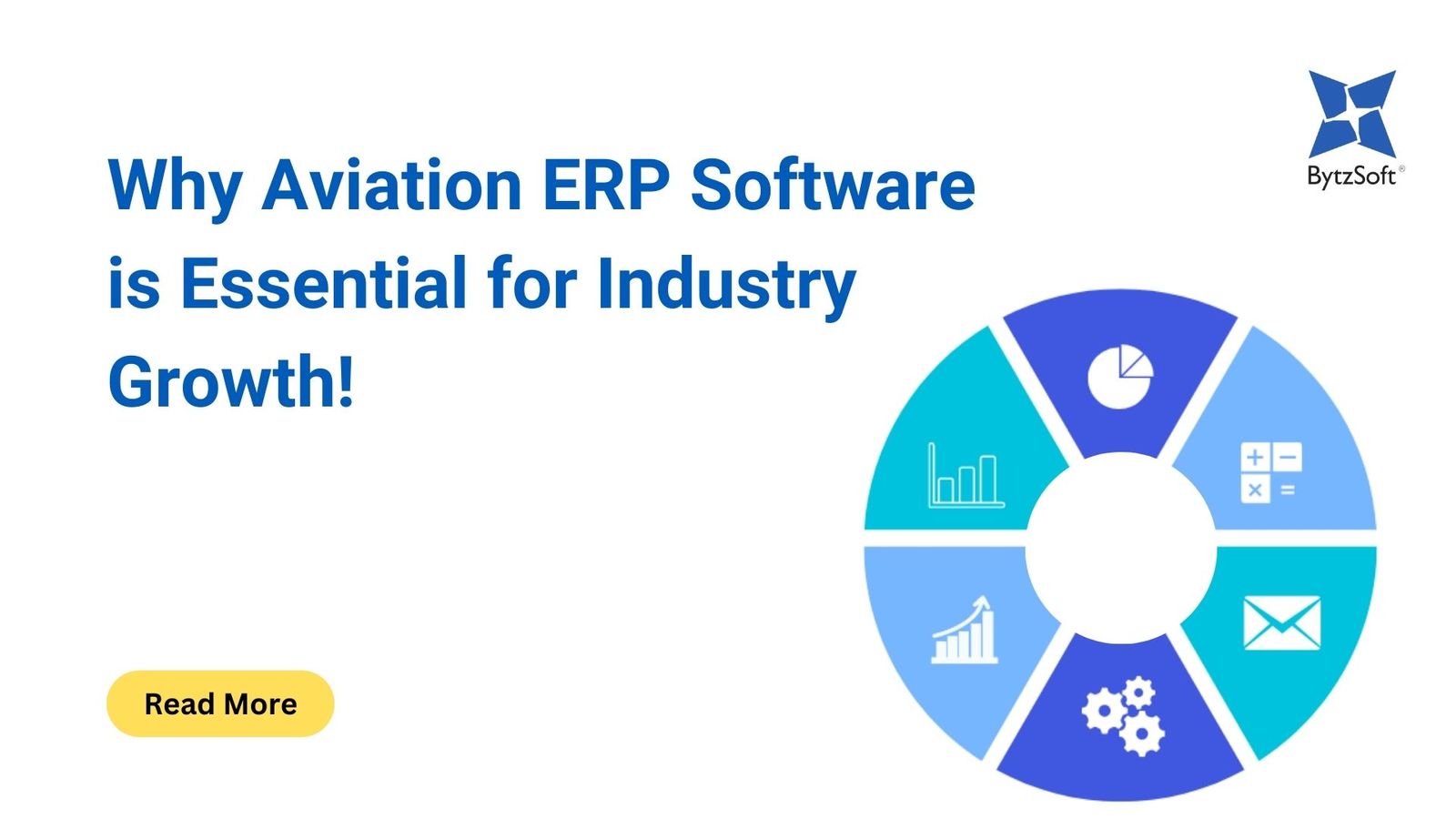In the aviation industry, where time is money and precision are key, companies face a never-ending race to stay ahead. With such high stakes, managing operations efficiently is crucial—not just for survival but for growth. That’s where Aviation ERP software steps in. Think of it as the backbone that keeps all functions connected, from managing financials to ensuring planes are ready for take-off. Aviation ERP software isn’t just about managing data; it’s about enabling companies to work smarter, not harder.
Understanding Aviation ERP Software
So, what exactly is Aviation ERP software? In simple terms, it’s a system designed to unify different departments, like maintenance, finance, HR, Stores etc under one digital roof. Imagine no more isolated teams or disconnected data. ERP pulls it all together, giving everyone access to the updated information. This kind of software is a game-changer because it helps companies eliminate silos, promote teamwork, and streamline everything from billing to fleet maintenance.
Key Benefits of Aviation ERP Software
- Enhanced Operational Efficiency Aviation ERP software is all about making things run smoother. ERP cuts down on mistakes and speeds up processes. This means fewer delays, quicker turnarounds, and ultimately happier customers.
- Data Access and Analytics In aviation, data isn’t a luxury – it’s a necessity. Insights to that data means more informed decisions, faster responses, and a better grasp on day-to-day operations.
- Improved Compliance and Reporting Anyone in aviation knows there’s a lot of paperwork, especially when it comes to regulatory compliance. ERP systems make this easier by keeping records up to date and producing reports on demand. This saves time, reduces the risk of penalties, and ensures that companies can stay compliant without constant manual work.
Addressing Industry Challenges with ERP
The aviation industry faces unique challenges: high operational costs, the pressure of strict regulations, and data that often gets stuck in silos. Aviation ERP software tackles these issues by creating a unified platform where data flows and tasks get done efficiently. By automating processes, ERP reduces overhead and makes compliance a built-in part of daily operations.
Scalability and Flexibility
One of the biggest advantages of ERP systems is that they can grow and adapt as companies evolve. Whether a company operates a fleet of commercial airlines or handles cargo, aviation ERP systems are flexible enough to fit different business models. This scalability means that as business demands change, ERP can keep pace, helping companies adapt without overhauling their systems.
Future Trends in Aviation ERP
Looking to the future, a few trends are reshaping how ERP systems function in aviation:
- Cloud-Based Solutions: With the cloud, ERP systems are accessible from anywhere, which supports remote work and real-time collaboration. Teams can access essential data on the go, making it easier to stay connected.
- AI Integration: AI is bringing a new level of intelligence to ERP. It can predict maintenance needs, optimize scheduling, and spot patterns that humans might miss. For aviation companies, this means smarter operations and less downtime.
- Mobile Access: Mobility is more important than ever. Mobile-friendly ERP means that teams can handle tasks, check data, and communicate, all from their devices. This adds a layer of flexibility, especially useful for teams in the field or on-site.
In a world where every minute counts, Aviation ERP software helps companies keep up with the demands of the industry. By simplifying processes, enabling real-time decisions, and scaling alongside businesses, ERP isn’t just a software, it’s a partner in growth.
Investing in Aviation ERP software can be the difference-maker that propels your organization forward. Ready to unlock the full potential of your operations with a tailored ERP solution? Contact us today to learn how FlyPal can support your growth journey in the skies.

